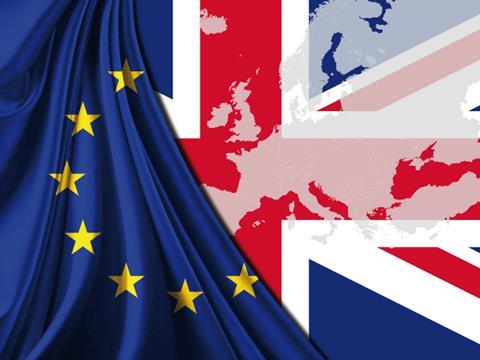
The food and drink industry has reacted with guarded optimism to the government’s new Brexit white paper, which tried to calm fears over the future of free trade and the immigrant workforce.
But leaders warned there were still huge questions that today’s white paper, which set out the 12 principles for Brexit (see below), failed to answer.
Although it says we will have “control over the number of EU nationals coming to the UK”, the paper also tries repeatedly to allay fears over a potentially disastrous impact on industries such as food and drink, which rely heavily on foreign workers.
Securing rights for EU nationals in the UK and UK nationals in the EU is named as a key objective in the document, which says the government will work to ensure this ‘as early as we can’.
As well as promising to “protect and enhance existing workers’ rights”, the white paper also sets out plans to ensure free trade following PM Theresa May’s announcement that leaving the EU will definitely mean the UK quitting the single European market.
‘We will forge a new strategic partnership with the EU including a wide-reaching, bold and ambitious free trade agreement, and will seek a mutually beneficial new customs agreement with the EU,’ says the paper.
Negotiations on Brexit with EU leaders will begin in earnest once the UK triggers Article 50 of the Lisbon Treaty, which industry sources tell The Grocer is most likely to happen around 9 March.
Yesterday MPs voted overwhelmingly to allow the PM to trigger Article 50 under the European Union Bill, though more discussions will be held in parliament next week as it enters the committee stage, with Labour and other Remain MPs having tabled many amendments.
Responding to the release, Helen Dickinson, chief executive of the BRC, said the white paper had given “reasons to be optimistic [about] trade and retail in a post-Brexit world”.
She said: “It’s encouraging that the government recognises that the UK has a role to play as a champion of free and open trade.
“However, securing a positive new customs arrangement with the EU, which enables mutually beneficial opportunities for trade with the EU and the rest of the world, will be crucial to ensuring British shoppers aren’t hit with the costs of unwanted import tariffs.
“Making these stated ambitions a reality will require close partnership between the retail industry and UK-EU negotiators. In the short term, the number one priority needs to be ensuring that Britain’s exit from the EU is orderly, allowing all goods traded between the EU and the UK to be in free circulation.”
The FDF gave an even more circumspect welcome to the white paper.
A spokesman said: “We welcome the additional detail on the government’s strategy provided in today’s white paper, which we will be studying closely.”
However, privately industry leaders have expressed immense frustration at the lack of clarity over the future of immigrant workers.
The FDF estimates about 27% of the UK’s food and drink manufacturing workforce are non-UK EU nationals, or 100,000 workers. It also estimates the UK will need to recruit a further 130,000 workers to plug a skills gap in the sector.
One company boss told The Grocer this week some of her foreign employees had already begun leaving the country because of the uncertainty over workers’ rights, a fear that was raised by organisations like the FDF immediately after the Brexit vote.
Food and drink leaders have also warned of the looming crisis caused by the problem of how to cope with the different trade policies over the border with the Republic of Ireland.
The white paper says the government will go about “protecting our strong and historic ties with Ireland and maintaining the Common Travel Area … whilst protecting the integrity of our immigration system and which protects our strong ties with Ireland.”
Regulation was another concern raised by the alliance for better food and farming Sustain, which warned against any weakening of rules on environment, pesticides, animal welfare, workers’ rights or food safety to both protect public health and ecosystems. The group welcomed the white paper’s pledge to create ‘new, better and more efficient policies for delivering sustainable and productive farming, land management and rural communities’. But Sustain pointed out the government had given “no detail at all about how they will do this” and warned that fishing policies in particular must not sacrifice sustainability in the pursuit of profit.
Read the full 12 principles outlined in the government’s Brexit document below.
1. Providing certainty and clarity: We will provide certainty wherever we can as we approach the negotiations.
2. Taking control of our own laws: We will take control of our own statute book and bring an end to the jurisdiction of the Court of Justice of the European Union in the UK.
3. Strengthening the union: We will secure a deal that works for the entire UK - for Scotland, Wales, Northern Ireland and all parts of England. We remain fully committed to the Belfast Agreement and its successors.
4. Protecting our strong and historic ties with Ireland and maintaining the Common Travel Area: We will work to deliver a practical solution that allows for the maintenance of the Common Travel Area, whilst protecting the integrity of our immigration system and which protects our strong ties with Ireland.
5. Controlling immigration: We will have control over the number of EU nationals coming to the UK.
6. Securing rights for EU nationals in the UK, and UK nationals in the EU: We want to secure the status of EU citizens who are already living in the UK, and that of UK nationals in other member states, as early as we can.
7. Protecting workers’ rights: We will protect and enhance existing workers’ rights.
8. Ensuring free trade with European markets: We will forge a new strategic partnership with the EU, including a wide-reaching, bold and ambitious free trade agreement, and will seek a mutually beneficial new customs agreement with the EU.
9. Securing new trade agreements with other countries: We will forge ambitious free trade relationships across the world.
10. Ensuring the UK remains the best place for science and innovation: We will remain at the vanguard of science and innovation and will seek continued close collaboration with our European partners.
11. Co-operating in the fight against crime and terrorism: We will continue to work with the EU to preserve European security, to fight terrorism, and to uphold justice across Europe.
12. Delivering a smooth, orderly exit from the EU: We will seek a phased process of implementation, in which both the UK and the EU institutions and the remaining EU member states prepare for the new arrangements that will exist between us.







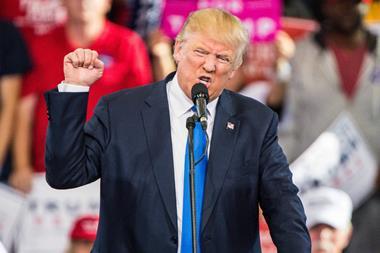
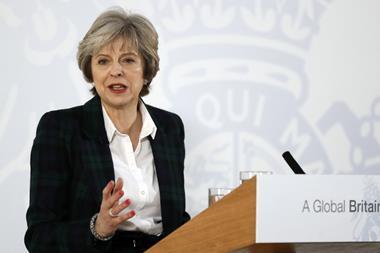
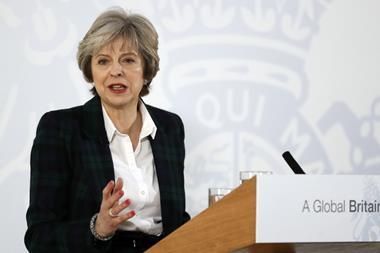
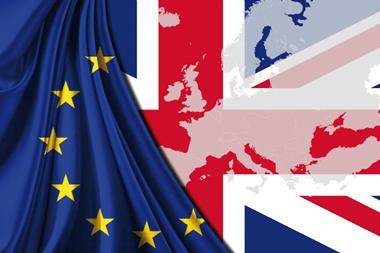








No comments yet